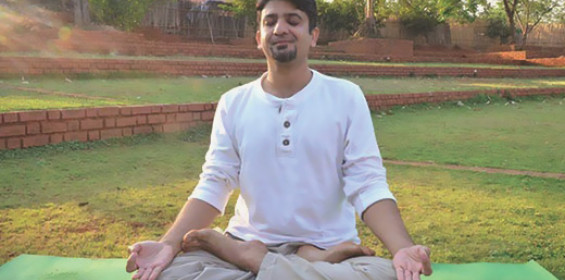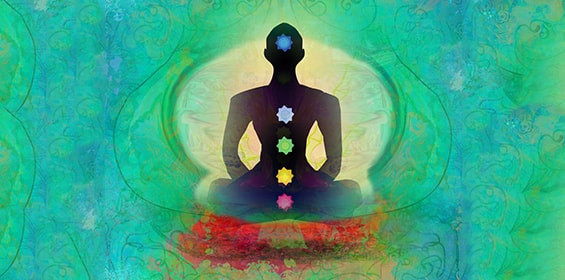There are four obstacles to meditation. This is in relation to the obstacles once we sit for meditation rather than the obstacles in sitting to meditate.
1. Iccha or desire
This means desire. It refers to the desire to do something and includes planning and intentions. When you're in the grip of iccha, it feels like there is a rock in your head. For most of us, this will be the primary disturbance in meditation. Wants (including hankering for enlightenment and deep meditations), work, family, or social commitments and the associated planning will tend to bombard the mind for many meditators.
2. Dwesha or hatred
This means aversion, hatred, or enmity. This also feels like you have a rock in the head and you're unable to meditate. This is why the Knowledge Point given in the Art of Living Happiness Program to "accept people and situations as they are" is so vital to meditators. If you sit with the intention of meditating when you are in the grip of dwesha, and keep holding on to it, you'll really appreciate the truth of the teaching, "it is we who suffer when we don't accept others".
3. Sukha or happiness
In this context, this means too much excitement. If you're feeling really happy and high, that feeling doesn't allow you to meditate.
4. Dukha or sadness
In both dukha and sukha, the feeling is like steam—boiling, unsettled. It's like you're in a pressure cooker and there's this huge pressure from the steam."
Overcoming obstacles in meditation
All four of these mental obstacles will definitely come up for most of us at different times in our meditations. Dispassion, or letting go and dropping them, is the key to deepening your meditations. But here's the rub – you often won't be able to let them go unless you really feel that they're not at all useful or interesting, that is, unless you've already developed some dispassion. Hence the need for knowledge.
It's not the arising of desires and plans that is the problem—it's the mind holding on to them because it has a vested interest in them. And this stops the mind from settling. Having no vested interest in thoughts when meditating is dispassion. If you treat the invasion of thoughts like a big problem and raise a hue and cry about the need to get rid of them, then you'll be in more trouble, as that will just add to your agitation.
So the first thing to do is to be totally okay with whatever comes up in your mind – welcoming all mental activities as they are, without entertaining them or fighting them. Noticing that you're fighting with them or entertaining them and being okay with that is also dispassion! Remember, don't try to alter or correct anything that happens in meditation.
Then the second thing is letting go. Letting go is not something we do or "work on" in meditation, because that would bring in effort. Letting go is not a skill that is acquired and practiced volitionally during meditation. It's a happening arising from understanding or from the sinking of the mind to more subtle levels through the mantra given in your Sahaj Meditation Class.
What will be very helpful, and really the only thing you can take from this discussion and directly practice in your meditation, is to make a decision at the start of your meditation that you are not going to have anything to do with whatever arises in your mind. That is, you're not interested in thinking anything, working anything out, planning, or using any of your senses. In other words, you are renouncing the world for 20 minutes. Without that decision, the mind is likely to reel in thought. With that decision, you are more likely to notice when you're getting caught up, and to effortlessly let go. Of course, sometimes you will still get caught up, but that is fine. Whatever happens, this decision will certainly help.
Gurudev Sri Sri Ravi Shankar has given us three little statements or Golden Keys, which we discuss in the Sahaj Samadhi Meditation course. They are a beautiful and powerful way to bring dispassion into your meditation. He recommends we entertain them before meditating and then drop them. Before sitting to meditate, say to yourself, "for the next 20 minutes, I want nothing; I do nothing; I am nothing. Entertaining the feelings that you want and do nothing at the start of meditation will set the stage for an effortless letting go of iccha—the desires, planning, and subsequent activities in the mind—as they arise.
Feeling that you are nothing gets to the core of dwesha, sukha, and dukha, which are also forms of feverishness that are ultimately based on a misperception of our identity. Sometimes, people find "I am nothing" to be a scary thought. However, you actually are "no thing". Any "thing" that can be conceived of or perceived can't be you. You're the subject that is aware of these "things", which include all our self-concepts, identifications, and perceived limitations. Another way of looking at this is that meditation is the letting go of "I am something" and returning to the simplest form of awareness—"I am". When you're in the grip of enmity towards someone or you are overexcited or sad, the innocent recognition that behind that there is a little thought-based "me", will bring a joyous letting go.
The statements are just to be very gently brought to awareness at the start of meditation, and then they have served their purpose. Just like we wash off the detergent after it has removed the dirt from a garment. If you use the Golden Keys during your meditation to calm the mind, it would be introducing effort. Trying to cultivate dispassion during meditation so you can have deeper meditations would only show that dispassion hasn't yet dawned!
So, give up IN meditation and let go of the world, but don't give up ON meditation!
















































